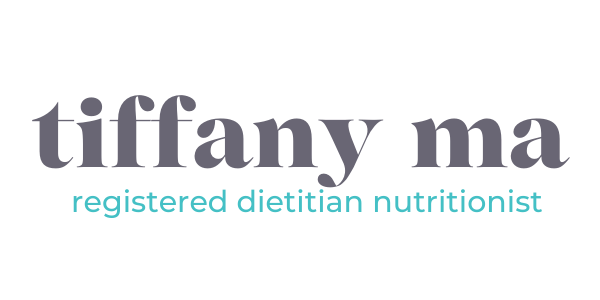The Six Most Commonly Asked Questions about My Career as a Registered Dietitian
I’ve been a Registered Dietitian sinc
1) What Qualifications Does a Dietitian Need?
A Registered Dietitian (RD) or a Registered Dietitian Nutritionist (RDN) are two credentials that Dietitians may call themselves in the United States. To become a Dietitian, one must meet certain qualifications that fall under the governing body that accredits these healthcare professionals. To meet these requirements, a Dietitian must follow these three steps:
Receive a four-year degree from a university in the field of dietetics, nutrition, food science, or a similar field. This four-year degree usually encompasses a curriculum that includes courses in the following subjects:
Human Biology, Physiology and Pathophysiology
Chemistry Sciences
Advanced Nutritional Sciences
Foodservice Management
Food Sciences
Complete a 1,200 hour accredited dietetic internship that provides interns with experience in the community, clinical, and food service setting.
There are just shy of 300 unique dietetic internships available in the United States as of 2020. These internships usually have classes that include either 10 to 50 dietetic interns!
The current dietetic internship match rate is 61% according to the Commission on Dietetic Registration’s statistics on supply and demand of students seeking dietetic internships in 2018.
Pass a national exam by the Commission on Dietetic Registration (CDR) after completion of a dietetic internship.
The national exam is a comprehensive exam that tests individuals' knowledge individuals gained during their undergraduate degrees, up into their dietetic internship.
After these three steps, Dietitians must continue their education for the rest of their careers to keep their credentials. Continuing education can be obtained through various methods, such as attending state and national conferences, networking opportunities, sitting in on educational webinars, and completing educational courses.
2) What does a Dietitian do?
The role of a Registered Dietitian can vary greatly depending on their specialized niches. Registered Dietitians can work in the community setting, clinical setting, and foodservice setting. A Registered Dietitian working in private practice most likely will be able to tailor their services to help serve you best. Dietitians are taught to use the following steps to best meet your needs:
Complete a nutrition assessment to address your nutrition-related concerns, lifestyle, and goals.
Determine a diagnosis that best describes your nutrition-related concerns.
Complete an intervention that will help you meet your nutrition-related goals and concerns.
Monitor and evaluate your progress.
These highlighted and streamlined steps are used by the majority of Dietitians to help establish the best plan of care for you.
3) Why should I see a Dietitian?
Registered Dietitians are well-versed in many areas of nutrition, and most Dietitians offer a special niche that can help you best meet your goals. Registered Dietitians are unique in that they can provide Medical Nutrition Therapy (MNT), which is a term used to describe diets or eating plans that can be prescribed to help alleviate chronic illnesses or diseases. Common reasons to see a Dietitian includes:
Receiving nutrition coaching for weight management, or weight loss
Receiving diabetes nutrition counseling to manage Diabetes Mellitus
Receiving nutrition counseling to manage gastrointestinal diseases, like ulcerative colitis
Receiving nutrition coaching for sports nutrition or athletic performance
As I stated, Dietitians can specialize in many aspects of nutrition, and oftentimes Dietitians can work past the individual level. Dietitians can also be found teaching classes to high school students, prescribing diets to athletes in the professional sports setting, and educating employees in work or corporate setting.
4) Are Personal Trainers Nutritionists?
Registered Dietitians specialize specifically in the science of food, nutrition, and metabolism. Although you may find Registered Dietitians that have certifications in personal training, most Dietitians do not provide sports or fitness training plans or recommendations.
Dietitians can provide general education on physical activity, and prescribe light activity, but anything past general recommendations is out of scope.
Dietitians are well equipped with the knowledge and experience to help individuals that may suffer from more serious nutrition-related concerns and diseases. Similar to Dietitians, Personal trainers may make general nutrition and food suggestions pertaining to physical activity, but usually anything past these recommendations should be taken with precaution.
5) What does a Dietitian do in the healthcare system?
Many Registered Dietitians work in the clinical setting, such as long-term care facilities (i.e. nursing homes) and acute-care settings (i.e. hospitals). In the clinical setting, Registered Dietitians are responsible for prescribing specific diets for patients that takes into consideration their needs.
These recommendations are made considering the patients’ best plan of care, which includes paying close attention to their allergens, tolerance, likes, dislikes, and of course, their current health status and diagnosed medical conditions.
Dietitians in the hospital work on an interdisciplinary team and work closely with nurse staff, Medical Doctors, and Speech-Language Pathologists (SLPs).
6) Do Dietitians accept insurance?
Referrals to a Registered Dietitian that accepts insurance can be made through contacting your primary care doctor. However, in many cases, you may reach out to a Registered Dietitian yourself to set up an initial appointment. If you prefer a face-to-face setting, a simple google search of a ‘Registered Dietitian’ in your area should do the trick.
Most Registered Dietitians offer a free consultation to see if they would be a good fit for you. Before committing to working with a Dietitian, be sure to see if they would be willing to hop on a quick call so you may both get to know each other!
It’s important to note that not all Registered Dietitians accept insurance, and unfortunately, I, myself do not at the time. However, I offer my clients the opportunity to pay for my services in a method that works best for them.
For more information about my services, please feel free to check out what I have to offer here.
Do you have any questions about my career as a Registered Dietitian? If so, feel free to leave some comments below!








